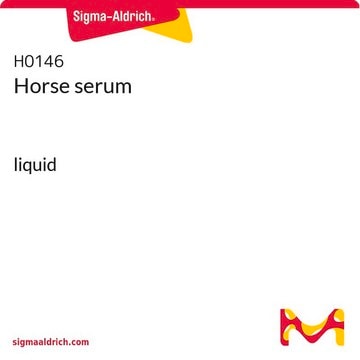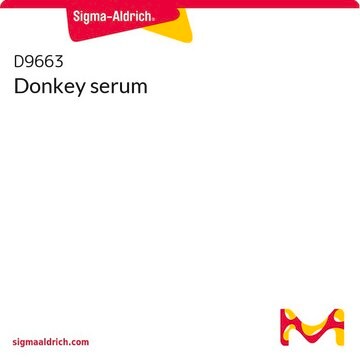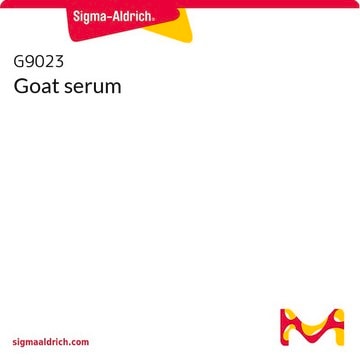12449C
Horse Serum
USA origin, Donor herd, suitable for cell culture, suitable for hybridoma
Synonym(s):
HS, equine sera, equine serum, horse sera, sera, serum
About This Item
Recommended Products
biological source
horse serum
Quality Level
sterility
sterile-filtered
composition
hemoglobin, ≤20 mg/dL
origin
USA origin
technique(s)
cell culture | hybridoma: suitable
cell culture | mammalian: suitable
impurities
≤10 EU/mL endotoxin
shipped in
dry ice
storage temp.
−20°C
Looking for similar products? Visit Product Comparison Guide
Application
Other Notes
Preparation Note
Storage Class Code
10 - Combustible liquids
WGK
WGK 3
Flash Point(F)
Not applicable
Flash Point(C)
Not applicable
Choose from one of the most recent versions:
Certificates of Analysis (COA)
Sorry, we don't have COAs for this product available online at this time.
If you need assistance, please contact Customer Support.
Already Own This Product?
Find documentation for the products that you have recently purchased in the Document Library.
Customers Also Viewed
Articles
Find answers to frequently asked questions (FAQs) about FBS and other serum products, and links to related products.
Find answers to frequently asked questions (FAQs) about FBS and other serum products, and links to related products.
Find answers to frequently asked questions (FAQs) about FBS and other serum products, and links to related products.
Find answers to frequently asked questions (FAQs) about FBS and other serum products, and links to related products.
Protocols
How to stain organoids? A complete step-by-step protocol for immunofluorescent (IF) and immunocytochemical (ICC) staining of organoid cultures using antibodies
How to stain organoids? A complete step-by-step protocol for immunofluorescent (IF) and immunocytochemical (ICC) staining of organoid cultures using antibodies
How to stain organoids? A complete step-by-step protocol for immunofluorescent (IF) and immunocytochemical (ICC) staining of organoid cultures using antibodies
How to stain organoids? A complete step-by-step protocol for immunofluorescent (IF) and immunocytochemical (ICC) staining of organoid cultures using antibodies
Our team of scientists has experience in all areas of research including Life Science, Material Science, Chemical Synthesis, Chromatography, Analytical and many others.
Contact Technical Service









